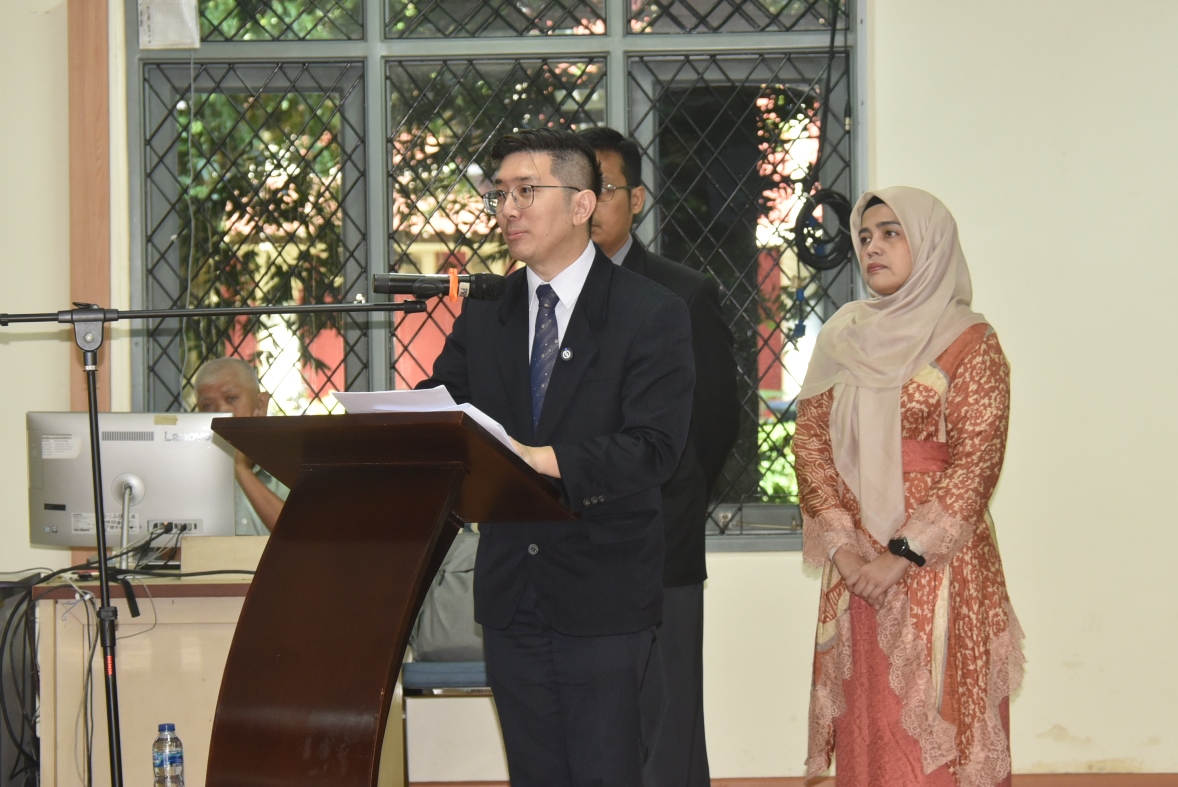Thyroid cancer is often misunderstood as a “good” cancer due to its long survival rate. As a result, thyroid cancer patients rarely receive attention regarding their quality of life and palliative care needs. In the past two decades, thyroid cancer rates have increased and has a favorable prognosis, especially for well-differentiated thyroid cancers like papillary and follicular, which have high survival rates. In both Indonesia and the United States, the incidence of thyroid cancer is rising, and despite the high costs of therapy, mortality remains low, leading to many patients becoming survivors.
Treatment for thyroid cancer involves surgery, radioactive iodine therapy, and TSH suppression. Some cases may require additional therapy, such as tyrosine kinase inhibitors or radiotherapy. However, quality of life and palliative care needs are often overlooked, even though they are crucial for the well-being of patients. A multidisciplinary approach is essential for the optimal management of thyroid cancer.
This context led to the research by Laurentius Aswin Pramono, which he defended in an open doctoral promotion session at the Faculty of Public Health (FPH) Universitas Indonesia (UI) on Friday, June 28, 2024. The research presented in his dissertation titled “Quality of Life and Palliative Care Needs in Post-Operative Thyroid Cancer Patients and Associated Factors” was defended during the open doctoral promotion session at the Doctoral Promotion Room, FPH UI Building G.
“This study aims to determine the quality of life and palliative care needs in post-operative thyroid cancer patients and the factors related to them. This research also develops an instrument and palliative care model for thyroid cancer patients in Indonesia. The validation of the ThyCaQoL questionnaire in Indonesian and the use of the PNPC and SPICT questionnaires will help assess the quality of life and palliative care needs. The research findings are expected to improve the quality of life and healthcare services for thyroid cancer patients in Indonesia,” said Laurentius Aswin in his dissertation summary presentation.
This study is a cross-sectional study with a mixed-methods approach (qualitative and quantitative) conducted at Cipto Mangunkusumo Hospital and St. Carolus Hospital, involving 204 thyroid cancer subjects. Interviews were conducted using the ThyCaQoL (Thyroid Cancer Quality of Life), PNPC (Problems and Needs for Palliative Care), and SPICT (Supportive and Palliative Care Indicator Tools) questionnaires. In-depth interviews were also conducted with 10 selected subjects to explore their quality of life and palliative care needs. Data analysis was performed using descriptive statistics, chi-square tests, logistic regression, and Poisson regression.
The research was carried out in two phases: validating the ThyCaQoL questionnaire from Indonesian to English and data collection from research subjects to examine the quality of life and palliative care needs of thyroid cancer patients.
From the structured interviews using the three mentioned questionnaires, the results revealed that 67 out of 204 subjects (32.8%) experienced a decline in quality of life, with persistent dysphonia as a related factor. Disease duration longer than 5 years showed a tendency for better quality of life, provided that patients did not receive targeted therapy or immunotherapy. Meanwhile, 24 out of 204 subjects (11.8%) required palliative care. Stage IV cancer, postoperative wound complaints, refractory radioablation, and the use of targeted therapy were associated factors with palliative care needs. Palliative care needs were correlated with poor quality of life.
Based on the research findings, Laurentius Aswin concluded that one in three thyroid cancer patients experiences a decline in quality of life, and one in eight thyroid cancer patients requires palliative care. Identification and predictive models can assist clinicians in prioritizing patients for adequate palliative care consultations. Factors related to thyroid cancer patients’ quality of life include dysphonia and disease duration over 5 years. Factors associated with palliative care needs in thyroid cancer patients include stage IV, postoperative wound complaints, refractory radioablation status, and the use of targeted therapy.
Based on the findings of his dissertation, Laurentius Aswin Pramono successfully graduated as a Doctor in the field of Epidemiology. He is the 109th doctoral graduate in Epidemiology at FPH UI and the 410th doctoral graduate from FPH UI.
The open session was led by Prof. Dr. dr. Ratna Djuwita, M.P.H., as the Chair of the Examination Committee, Prof. Drg. Nurhayati Adnan, M.P.H., M.Sc., Sc.D., as the Promoter, and Dr. dr. Hamzah Shatri, M.Epid, Sp.PD-KPSi., and Prof. Dr. dr. Imam Subekti, Sp.PD-KEMD., as Co-promoters. The examination team consisted of Dr. dr. Felicia Kurniawan, M.Kes.; Prof. Dr. dr. Sabarinah, M.Sc.; and Prof. Dr. dr. L. Meily Kurniawidjaja, M.Sc., SpOK. (Promovendus)

